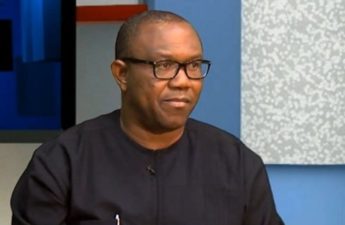The Tinubu Administration’s Politics of Development Strategies in Nigeria – An Overview and Reflection as opined by the APGA National Chairman, Barrister Sly
Ezeokenwa – Written by Nduka Anyanwu, SA- Media to The APGA National Chairman.
APGA’s stance on the politics of development strategy in Nigeria under Tinubu’s administration is one of opposition and critique. According to the party’s National Chairman, Sly Ezeokenwa, APGA is ready to form an alliance with other progressive political forces across party lines to build a better Nigeria.
Ezeokenwa emphasized that APGA proudly has elected representatives within and outside the South East, and they are willing to work with others to promote progressive ideals. However, he did not provide specific details on APGA’s development strategy or how they plan to counter Tinubu’s administration at the moment.
Recall our last article was on the 1999 – 2023 Administration and as Nigeria navigates its latest chapter under President Bola Tinubu, the All-Progressives Grand Alliance (APGA) takes a closer look at the administration’s development strategies. Since assuming office in May 2023, President Tinubu has implemented several policies aimed at shaping the country’s economic landscape.
ECONOMIC REFORMS AND CHALLENGES
One of the most significant moves by the Tinubu administration was the removal of the fuel subsidy, which pushed transport costs up by over 300%. This decision has had far-reaching implications, including a surge in inflation, which rose to 28.20% in
November 2023. The administration has also faced criticism for its handling of the economy, with many arguing that the policies have exacerbated poverty and inequality.
EIGHT (8) PRESIDENTIAL PRIORITY AREAS
Despite these challenges, the Tinubu administration has outlined eight key priority areas for development between 2023 and 2027. These areas include:
1. Reforming the Economy: Creating a robust, diversified, and resilient economy through investment and innovation.
2. Strengthening National Security: Enhancing the capabilities of security forces and promoting peace and stability.
3. Boosting Agriculture: Modernizing farming practices and increasing access to finance and market opportunities.
4. Unlocking Energy and Natural Resources: Managing natural resources sustainably and driving economic growth.
5. Enhancing Infrastructure and Transportation: Upgrading and expanding infrastructure and transportation networks.
6. Focusing on Education, Health, and Social Investment: Investing in human capital through education, healthcare, and social welfare programs.
7. Accelerating Diversification: Promoting industrialization, digitization, creative arts, manufacturing, and innovation.
8. Improving Governance: Enhancing governance structures for efficient and transparent service delivery.
APGA’S PERSPECTIVE
As the APGA assesses the Tinubu administration’s development strategies, it is clear that the government faces significant challenges in implementing its policies. The removal of the fuel subsidy, while intended to stimulate economic growth, has had devastating consequences for many Nigerians.
The APGA urges the Tinubu administration to reconsider its approach to economic
reform and to prioritize policies that benefit the most vulnerable members of society. By doing so, the government can ensure that its development strategies are inclusive, equitable, and effective in promoting sustainable growth and development.
CONCLUSION
As Nigeria continues on its development journey, it is essential that the government
prioritizes policies that benefit all citizens. The APGA remains committed to promoting good governance, transparency, and accountability, and will continue to monitor the Tinubu administration’s development strategies to ensure that they align with these principles.




